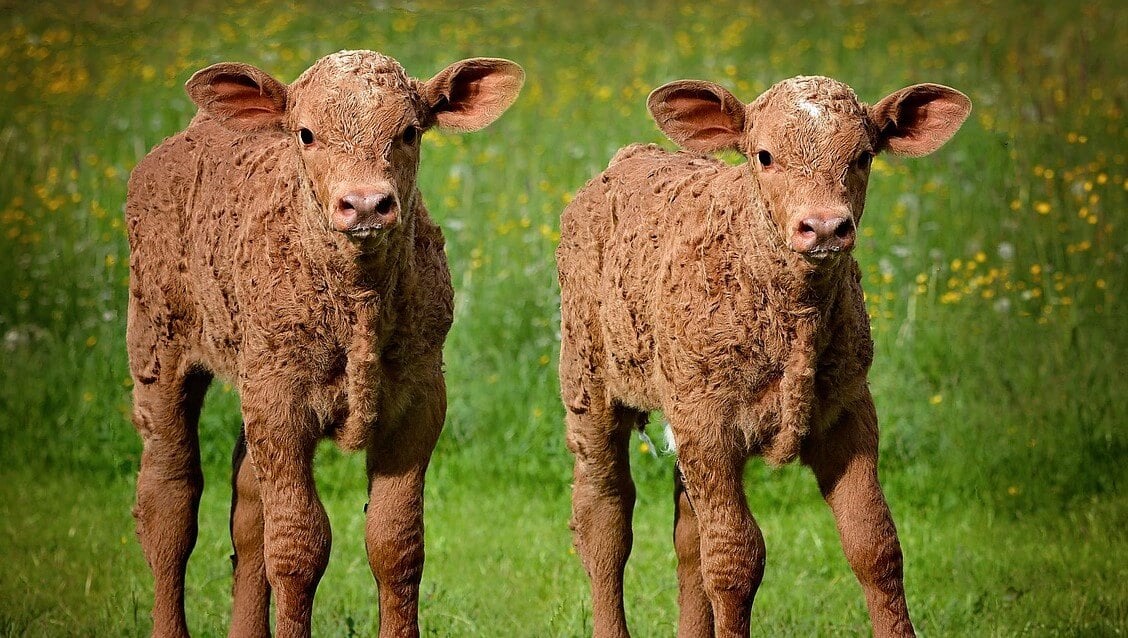
[ad_1]
We can show empathy for animals through our choices, including the foods we eat.
Though you may be aware of cane sugar’s harmful effects on human health and the environment—from heart disease and obesity to deforestation—consuming it also has consequences for our fellow animals.

The sugar industry uses bone char—produced by charring cows’ bones—as a filtering and bleaching agent. These bones come from the meat industry, where cows languish in crowded, filthy feedlots before a slaughterhouse worker kills them by shooting them in the head.
Cows are unique individuals with tender personalities. Research suggests that these gentle giants possess remarkable cognitive abilities, memories, and problem-solving skills. They form deep social bonds and grieve when they’re torn away from those they love, sometimes shedding tears over their loss. Cows, like all animals, value their lives and don’t want to be killed.
For those who want to sweeten their dishes without harming animals, we have a solution: coconut sugar. Unlike conventional cane sugar, coconut sugar is made by converting liquid sap into sugar granules through heat evaporation. The more we support vegan sugar, the less demand there will be for sugar processed using animals’ bones.
Not only is coconut sugar vegan, it also boasts a rich flavor profile, with hints of caramel and butterscotch, making it a delightful addition to various dishes. Plus, coconut sugar has tons of health properties for humans, including the following:
-
Electrolytes
It contains potassium, magnesium, and sodium, which are essential for regulating your body’s water content and many heart, nerve, and muscle functions. It has nearly 400 times more potassium than regular sugar.
-
A low-glycemic index
Cane sugar has a glycemic index (GI)—a measure of how quickly a food elevates our blood sugar levels—of 60, while coconut sugar has a GI of 35. This is much closer to the GI of the sugar in fruits, which is around 25.
-
Minerals
It contains iron, zinc, and calcium, which offer many health benefits, including stronger bones.
-
Nitrogen
Coconut sugar has trace amounts of nitrogen, which your body needs to produce proteins in muscles, skin, blood, hair, and nails.
-
Vitamin C
Vitamin C, also found in coconut sugar, is best known for boosting your immune system and helps maintain healthy joints and skin, too.
-
Antioxidants
Coconut sugar contains antioxidants, which fight off the oxidation of cells in the body and can slow the aging process.
-
Short-chain fatty acids
It has healthy fats that help prevent high cholesterol and heart disease.
-
Inulin
It also contains a small amount of inulin, a dietary fiber that helps keep your gut healthy, reduces your risk of colon cancer, and manages your blood sugar.
-
Less sucrose
While standard table sugar is pure sucrose, coconut sugar is only about 75% sucrose. The other 25% comprises nutrients, fiber, and other “good stuff.” For the same amount of conventional sugar, you’re consuming less of the “bad stuff” while increasing your nutrient intake.
Coconut sugar can replace cane sugar in a 1:1 ratio. Its consistency resembles brown sugar, so make sure you give it a little extra time to dissolve or to combine with other ingredients when cooking or baking.
You can use coconut sugar virtually anywhere you’d use cane sugar, including in your morning coffee or your favorite vegan dessert recipe. So next time you’re craving something sweet, reach for coconut sugar. It will satisfy cravings without compromising compassion.
Order a Free Vegan Starter Kit!
[ad_2]
Source link

Leave a Reply